Conflict of Interest?
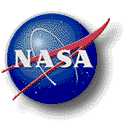 If you're investigating NASA and yet NASA's
picking up the check for your work, how impartial can your
investigation be? That question is being posed by The Orlando
Sentinel and other newspapers around the world, after
revelations that civilian members of the Columbia Accident
Investigation Board (CAIB) are getting hefty salaries from the
space agency they're supposed to be dispassionately examining.
If you're investigating NASA and yet NASA's
picking up the check for your work, how impartial can your
investigation be? That question is being posed by The Orlando
Sentinel and other newspapers around the world, after
revelations that civilian members of the Columbia Accident
Investigation Board (CAIB) are getting hefty salaries from the
space agency they're supposed to be dispassionately examining.
Not Bad Pay, Either
And the pay's not bad. Five civilian members of the CAIB are now
receiving at least $134,000 a year from NASA, even though they were
added to the board to ensure its impartiality:
- CAIB Chairman Howard Gehman, USN, ret.
- Dr. Sally Ride, former Shuttle Astronaut, now Professor Of
Space Science, University of California/San Diego
- Roger Tetrault, Chairman, McDermott International, ret.
- Sheila Widnall, Professor of Aeronautics and Astronautics,
MIT
- Douglas Osherhoff, Professor, Stanford University
- John Logsdon, Director, George Washington University Space
Shuttle Institute
Paying The Investigators Changes The Rules
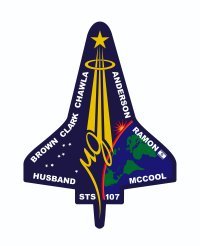 With the revelation that the five civilian members
of the CAIB are on NASA's payroll, the rules change dramatically.
Even though NASA Administrator Sean O'Keefe has promised full
disclosure of the facts as NASA continues its invstigation into the
Columbia tragedy, the fact that all 13 CAIB members are NASA-paid
now means they can meet behind closed doors. They can meet in
secret, make findings in secret and report to NASA - in secret.
With the revelation that the five civilian members
of the CAIB are on NASA's payroll, the rules change dramatically.
Even though NASA Administrator Sean O'Keefe has promised full
disclosure of the facts as NASA continues its invstigation into the
Columbia tragedy, the fact that all 13 CAIB members are NASA-paid
now means they can meet behind closed doors. They can meet in
secret, make findings in secret and report to NASA - in secret.
Already, Gehman has exercised the CAIB's new "right to privacy."
More than 200 NASA workers who helped prep and conduct Columbia's
last mission have been interviewed by the CAIB. Gehman, a retired
Navy admiral who is being paid at the rate of $142,500 per year,
"Those (transcripts) are never going to see the light of day,"
according to the Sentinel.
But Gehman insists the point is not to withhold evidence from
the public. In a prepared statement released to ANN over the
weekend, he said, "The board determined it could provide a
much deeper and richer review of NASA policies and procedures if it
employed standard safety investigation procedures, which are
incompatible with [open-government] provisions."
That statement did not respond to a rising chorus of questions
about the pay NASA is providing both him and the other five
civilian members of the CAIB.
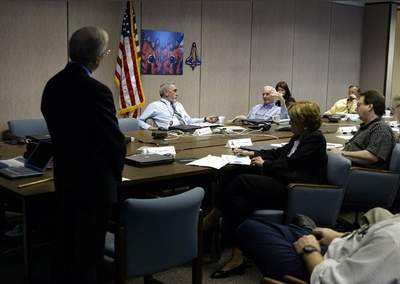
Science Board: "Baffling"
The Orlando Sentinal quotes Steven Aftergood, leader of
the Project on Government Secrecy at the Federation of American
Scientists as saying "Three words - conflict of interest."
Aftgergood accuses NASA of tainting the CAIB by picking up the tab
for the five civilian members. "The upshot is, we don't have an
independent investigating board. This means NASA is investigating
itself. This defeats the whole purpose of having an independent
inquiry. What they did was hire outsiders and convert them into an
internal board. It's just baffling."
All five civilian members of the board say the NASA money in no
way compromises their impartiality. However, in an e-mail to the
Sentinel, Sally Ride said, "I don't see it an issue for
the Board members to be on the federal payroll - this board, unlike
most pro-bono government committees, is essentially a full-time job
(for which people should receive some compensation). But one might
ask whether it should be NASA's payroll."
In 1986, when the shuttle Challenger exploded 104 seconds after
lift-off, then-President Ronald Reagan appointed a special
investigatory commission, funded by Washington. President George W.
Bush did not do that in the wake of the Feb. 1, 2003 Columbia
disaster in which seven astronauts were killed.
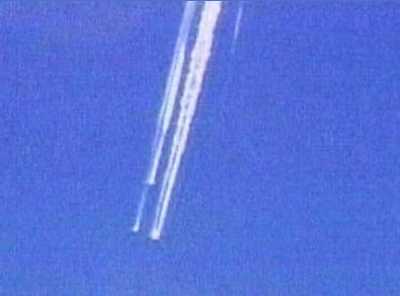
Plan In The Can
Ninety minutes after the tragedy, NASA Administrator O'Keefe
announced establishment of the CAIB. It's a canned plan - that is,
one ready to pull off the shelf in the event of a tragedy like the
disintegration of Columbia. Designed in 1995, it's written along
the same lines the military uses to investigate flight accidents.
It calls for secret testimony and secret meetings - and a focus,
not on who is at fault in an air disaster, but on how such
accidents can be prevented in the future.
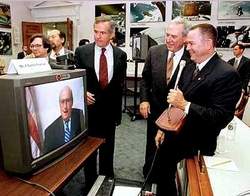
From the get-go, the plan was criticized because the
investigation team seemed to have a conflict of interest. NASA
members were investigating themselves and each other.
"The fact of the matter is, so far the commission that's there
now was appointed by NASA, is staffed by NASA and reports back to
NASA, and I'm afraid that's just not going to be credible," said
Rep. Bart Gordon (D-TN, right), ranking Democrat on the House
Science Committee's Space subcommittee, in comments echoed by
members of both parties, the Sentinel reported.
Under increasing heat from Congress and the public, O'Keefe
added the civilian members to the CAIB, saying NASA "has taken the
necessary steps to ensure the board's complete independence."
But, as the Sentinel reports in Sunday's editions,
O'Keefe didn't tell members of Congress in testimony last February
that the investigatory procedures themselves, devised eight years
ago, would remain the guiding light of the CAIB.
Civilian Members React To Criticism
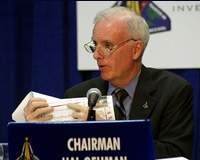 How do
the five civilian CAIB members themselves react to the growing
outcry over their impartiality? Each was quoted in the Sunday
edition of the Sentinel.
How do
the five civilian CAIB members themselves react to the growing
outcry over their impartiality? Each was quoted in the Sunday
edition of the Sentinel.
- Adm. Gehman: "Any inference that all board members were made
federal employees to avoid (open government) provisions is not
accurate. The board determined it could provide a much deeper and
richer review of NASA policies and procedures if it employed
standard (secret) safety-investigation procedures."
- Prof. Ride: "I don't see it an issue for the board members to
be on the federal payroll. This board is essentially a full-time
job. But one might ask whether it should be NASA's payroll."
- Mr. Tetrault: "It is certainly my belief that we have acted
independently from NASA and, on occasion, have been very critical
of some of their practices."
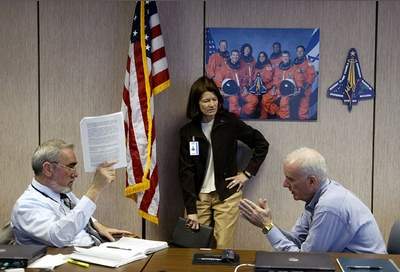
- Dr. Widnall: "I could care less whether I'm a government
employee. I think it's just a matter of convenience. I do not
compromise my independence in any way."
- Dr. Osheroff: "We rely on NASA for a lot of stuff, but I can
tell you that we have been very highly critical of the past way
NASA has done many things. Most of the people who are on the board,
I don't think they care where they're getting paid."
- Dr. Logsdon: "The basic evidence of CAIB's independence from
NASA, and specifically mine, will be the content of our report and
recommendations."
 ANN FAQ: Contributing To Aero-TV
ANN FAQ: Contributing To Aero-TV Aero-News: Quote of the Day (12.10.25)
Aero-News: Quote of the Day (12.10.25) ANN's Daily Aero-Term (12.10.25): North Atlantic High Level Airspace (NAT HLA)
ANN's Daily Aero-Term (12.10.25): North Atlantic High Level Airspace (NAT HLA) Airborne 12.08.25: Samaritans Purse Hijack, FAA Med Relief, China Rocket Fail
Airborne 12.08.25: Samaritans Purse Hijack, FAA Med Relief, China Rocket Fail Airborne-Flight Training 12.04.25: Ldg Fee Danger, Av Mental Health, PC-7 MKX
Airborne-Flight Training 12.04.25: Ldg Fee Danger, Av Mental Health, PC-7 MKX









